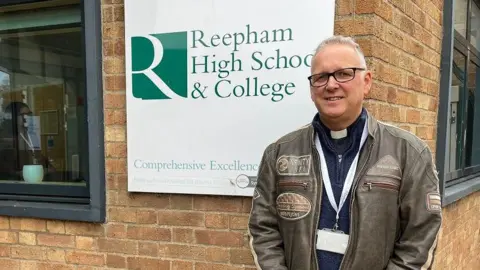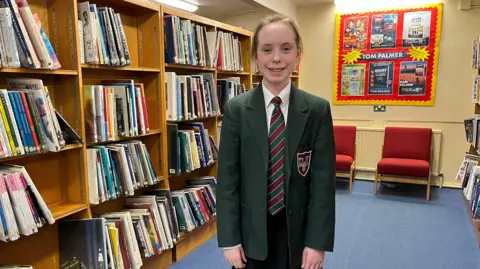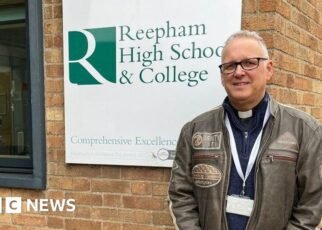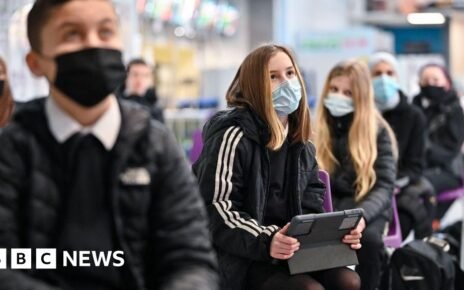 BBC
BBCAn increasing number of non-faith schools are hiring chaplains to offer emotional support to students.
The Centre for Chaplaincy in Education has put the rise down to the pressures felt by young people after the Covid 19 pandemic as well as the impact of social media.
The number of chaplains appointed in UK schools has risen from 200 in 2014 – to 900 in 2022.
The Synergy multi-academy trust in Norfolk has a chaplain working across four of its high schools.

Reverend Keith Rengert says the role of chaplain is very different job to being a teacher.
“I sometimes say to the ones whose behaviour is challenging, I can’t give you a detention but I can get you one,” he said.
“I’m a bit apart from the system.”
Children are offered chaplaincy support if they have behavioural issues, are struggling with the school workload or if they have problems at home.
While faith is important to Reverend Keith, he says he does not enforce it on the children.
“I’m a chaplain in non-church schools because I’m a Christian.. I don’t expect anyone to share my faith, that’s entirely up to them.
“If there is a faith discussion then it is instigated by the child.”
‘Nice to have someone who is not a teacher or a parent’
One of those to benefit from the chaplaincy scheme at Reepham High is 12-year-old Evie.
“It’s really nice to have someone who is not a teacher or a parent that you can just go to and talk to about whatever is on your mind,” she said.
“Last year I was struggling with coming up to high school and the amount of homework and to keep having hospital trips for JIA – which is an arthritis that affects children.”
She said she was managing much better at school thanks to the support of Reverend Keith.
Chaplains can belong to any faith, but the majority in Norfolk are Christian.
The Church of England says that faith chaplains have been ministering to schools for centuries.
It suggests the role should include “building a bridge between the school and church”, and between the school and the wider community, including other denominations and faith communities.




